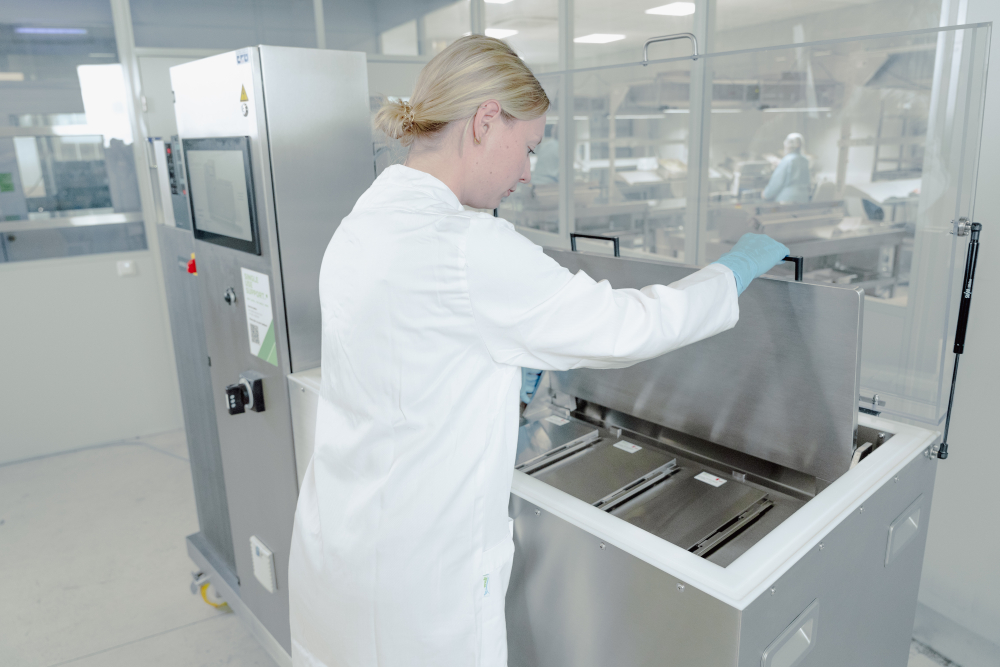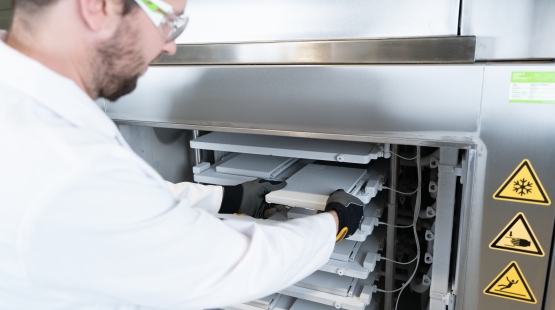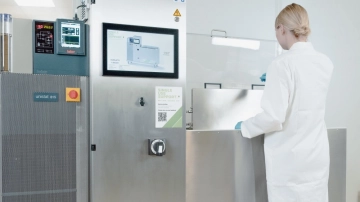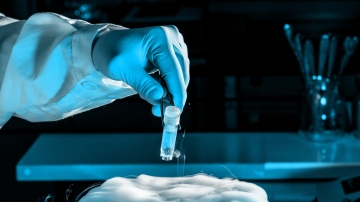Advantages of cell banking
Table of contents
ShowCell banking holds the key to unlocking countless possibilities in research and biopharmaceutical production. By preserving and storing valuable cell lines, cell banking ensures a stable and consistent source of cells for various applications. In this blog post, we will explore the numerous advantages of cell banking and its pivotal role in driving advancements in the fields of science and medicine.
Advantages of cell banking in an overview
- Consistency & reproducibility
- Risk mitigation
- Time savings
- Cost savings
- Accelerating drug development
- Standardization
In the next few sections, we will find out in detail how and for whom a cell bank brings advantages.
Consistent & reproducible results
Cell banking plays a crucial role in maintaining the integrity of cell lines over time. By freezing and storing cells at specific passage levels, it minimizes genetic drift and phenotypic variations, leading to more reliable and reproducible experimental results. Researchers can confidently compare data and validate their findings, enhancing the credibility of their scientific work.1
Risk mitigation
In the dynamic world of research and biopharmaceutical production, unexpected events like contamination or loss of cell cultures can be detrimental. Cell banking serves as a reliable contingency plan by providing a backup of valuable cell lines. This safeguards the continuity of clinical studies and bioproduction processes, saving valuable time and resources for drug development.
Time & cost savings
Cell banking streamlines laboratory operations by reducing the need for frequent cell line isolation and characterization. Researchers can access well-characterized and pre-preserved cell lines, saving time and effort in their experiments. Biopharmaceutical companies benefit from more efficient production processes, leading to cost savings and accelerated drug development timelines.
Accelerating drug development
In drug development, time is of the essence. Cell banking accelerates the process by facilitating efficient drug screening and testing. Researchers can perform high-throughput experiments using standardized cell lines from banks, identifying potential therapeutics more rapidly. This speedier discovery of promising drug candidates has the potential to revolutionize medical treatments.
Fostering collaboration & standardization
Cell banks promote collaboration and standardization in the scientific community. Sharing well-characterized cell lines among researchers worldwide fosters knowledge exchange and accelerates scientific discoveries. Standardized cell lines enable comparative studies and meta-analyses, facilitating the advancement of scientific knowledge.
Conclusion: What are the advantages of cell banking?
In conclusion, cell banking offers a multitude of advantages that drive progress in science and medicine. The advantages of cell banking include:
consistent and reproducible results
risk mitigation through contingency planning
time and cost savings
accelerated drug development and fostering collaboration and standardization.
Researchers and biopharmaceutical companies can streamline their operations, reduce risks, and accelerate discoveries through the benefits of cell banking.
How to best take advantage of the benefits?
Single Use Support empowers scientists and medical professionals to optimize their cell banking processes with single-use bioprocessing solutions. The cutting-edge systems allow automated, sterile filling of cells into single-use bags, immobilized in a small shell they are ready for the freezing process.
Single Use Support is an expert in the freeze-thaw area of drug substances. The product range includes plate-based freezing platforms for freezing any volume, for cell banking especially suitable is the RoSS.pFTU Lab Scale. Furthermore, Single Use Support has developed the cryogenic controlled rate freezer, which is unique on the market and allows the freezing process to be precisely controlled down to -170°C.
Why is this so important? To make use of the benefits of cell banking, high quality of cells and prevention of contamination or product loss is of utmost importance. Study results confirm a consistent and uniformly high rate of cell recovery after cryopreservation of cells with an accelerated cell-based process flow.
With plate-based freezing and cryogenic freezer solutions, Single Use Support works closely with the ultimate users, the laboratory professionals, to provide solutions for cryopreservation of cell banks. This enables faster and easier study results, thereby promoting drug development.

FAQs about cell banking advantages
What are the advantages of cell banking?
The advantages of cell banking include providing a consistent source of cells for research, saving time and cost by avoiding repetitive cell isolation, accelerating drug screening, supporting personalized therapies, and fostering collaboration through shared resources.
What is the purpose of cell banking?
The purpose of cell banking is to preserve and store valuable cell lines for various applications in scientific research, drug development, biopharmaceutical production, regenerative medicine, and cell-based therapies. Cell banking ensures a stable and consistent source of cells, enabling reproducibility and continuity in experiments and processes.
What is the process of cell banking?
Cell banking is the process of preserving and storing cells under controlled conditions to ensure their viability and genetic stability for future use. It involves isolation, characterization, freezing, and storage of cells, commonly used in research, biotechnology, and medical applications.
Interview
- Stem Cell Banking for Regenerative and Personalized Medicine, http://dx.doi.org/10.3390/biomedicines2010050, Published 2014-02-26











